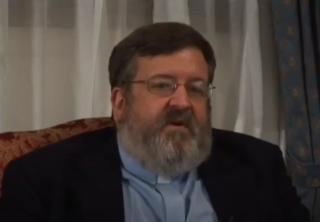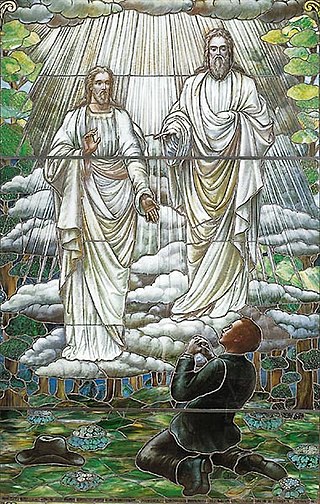
Irredentism is one state's desire to annex the territory of another state. This desire can be motivated by ethnic reasons because the population of the territory is ethnically similar to the population of the parent state. Historical reasons may also be responsible, i.e., that the territory previously formed part of the parent state. However, difficulties in applying the concept to concrete cases have given rise to academic debates about its precise definition. Disagreements concern whether either or both ethnic and historical reasons have to be present and whether non-state actors can also engage in irredentism. A further dispute is whether attempts to absorb a full neighboring state are also included. There are various types of irredentism. For typical forms of irredentism, the parent state already exists before the territorial conflict with a neighboring state arises. However, there are also forms of irredentism in which the parent state is newly created by uniting an ethnic group spread across several countries. Another distinction concerns whether the country to which the disputed territory currently belongs is a regular state, a former colony, or a collapsed state.
A nation is a large type of social organization where a collective identity, a national identity, has emerged from a combination of shared features across a given population, such as language, history, ethnicity, culture, territory or society. Some nations are constructed around ethnicity while others are bound by political constitutions.

John Shelby "Jack" Spong was an American bishop of the Episcopal Church, born in Charlotte, North Carolina. He served as the Bishop of Newark, New Jersey from 1979 to 2000. Spong was a liberal Christian theologian, religion commentator, and author who called for a fundamental rethinking of Christian belief away from theism and traditional doctrines. He was known for his progressive and controversial views on Christianity, including his rejection of traditional Christian doctrines, his advocacy for LGBTQ rights, and his support for interfaith dialogue. Spong was a contributor to the Living the Questions DVD program and was a guest on numerous national television broadcasts. Spong died on September 12, 2021, at his home in Richmond, Virginia, at the age of 90.
Marvin Olasky is a senior fellow of the Discovery Institute and an affiliate scholar at the Acton Institute. He also chairs the Zenger House Foundation, serves as a Zenger Prize judge, and is the author of 29 books. From 1992 through 2021, he edited World.

The mainline Protestant churches are a group of Protestant denominations in the United States and in some cases in Canada largely of the theologically liberal or theologically progressive persuasion that contrast in history and practice with the largely theologically conservative Evangelical, Fundamentalist, Charismatic, Confessional, Confessing Movement, historically Black church, and Global South Protestant denominations and congregations. Some make a distinction between "mainline" and "oldline", with the former referring only to denominational ties and the latter referring to church lineage, prestige and influence. However, this distinction has largely been lost to history and the terms are now nearly synonymous.
Social conservatism in Canada represents conservative positions on issues of family, sexuality and morality. In the European and North American context, social conservatives believe in natural law as well as traditional family values and policies. In Canada's modern context, social conservatism also includes pro-life values on abortion and euthanasia.

The Christ myth theory, also known as the Jesus myth theory, Jesus mythicism, or the Jesus ahistoricity theory, is the view that the story of Jesus is a work of mythology with no historical substance. Alternatively, in terms given by Bart Ehrman paraphrasing Earl Doherty, it is the view that "the historical Jesus did not exist. Or if he did, he had virtually nothing to do with the founding of Christianity."
Conservative Christianity, also known as conservative theology, theological conservatism, traditional Christianity, or biblical orthodoxy is a grouping of overlapping and denominationally diverse theological movements within Christianity that seeks to retain the orthodox and long-standing traditions and beliefs of Christianity. It is contrasted with Liberal Christianity and Progressive Christianity, which are seen as heretical heterodoxies by theological conservatives. Conservative Christianity should not be mistaken as being necessarily synonymous with the political philosophy of conservatism, nor the Christian right.
Christian nationalism is a type of religious nationalism that is affiliated with Christianity. It primarily focuses on the internal politics of society, such as legislating civil and criminal laws that reflect their view of Christianity and the role of religion/s in political and social life.

Christian egalitarianism, also known as biblical equality, is egalitarianism based in Christianity. Christian egalitarians believe that the Bible advocates for gender equality and equal responsibilities for the family unit and the ability for women to exercise spiritual authority as clergy. In contrast to Christian complementarianists and Christian patriarchists, proponents of Christian egalitarianism argue that Bible verses often used to justify patriarchal domination in gender roles are misinterpreted. Egalitarians believe in a form of mutual submission in which all people submit to each other in relationships and institutions as a code of conduct without a need for hierarchical authority.

Kendall S. Harmon, is a writer and priest of the Anglican Church in North America. Formerly a leading traditional theologian with the Episcopal Church, Harmon is known for his activity, writing, and commentary on matters related to homosexuality and the Anglican church in the years prior to, during, and following the schism of the Episcopal Church and the subsequent formation of the Anglican Church in North America.
George E. "Tink" Tinker is an American Indian scholar of the Osage Nation who taught for more than three decades at the Iliff School of Theology, a United Methodist Church theological school, where he focused his scholarship on the decolonization of American Indian Peoples. The Tinker family name is deeply embedded among the Osage.
John Dickson is an Australian author, Anglican clergyman and historian of the ancient world, largely focusing on early Christianity and Judaism. He currently teaches at the graduate school of Wheaton College (Illinois).

Mormonism and Nicene Christianity have a complex theological, historical, and sociological relationship. Mormons express their doctrines using biblical terminology. They have similar views about the nature of Jesus Christ's atonement, bodily resurrection, and Second Coming as mainstream Christians. Nevertheless, most Mormons do not accept the doctrine of the Trinity as codified in the Nicene Creed of 325 and the Nicene-Constantinopolitan Creed of 381. Although Mormons consider the Protestant Bible to be holy scripture, they do not believe in biblical inerrancy. They have also adopted additional scriptures that they believe to have been divinely revealed to Joseph Smith, including the Book of Mormon, the Doctrine and Covenants, and the Pearl of Great Price. Mormons practice baptism and celebrate the sacrament of the Lord's Supper, but they also participate in other religious rituals. Mormons self-identify as Christians.

Christianity is the most widely professed religion in South Sudan, with significant minorities of the adherents of traditional faiths and Islam.

Kevin Lee DeYoung is an American Reformed theologian, pastor and author. He is currently the senior pastor at Christ Covenant Church, in Matthews, North Carolina. The church he previously pastored, University Reformed Church, shifted to the Presbyterian Church in America in March 2015 after having been a member of the Reformed Church in America.
The idea that a common Judaeo-Christian ethics or Judeo-Christian values underpins American politics, law and morals has been part of the "American civil religion" since the 1940s. In recent years, the phrase has been associated with American conservatism, but the concept—though not always the exact phrase—has frequently featured in the rhetoric of leaders across the political spectrum, including that of Franklin D. Roosevelt and Lyndon B. Johnson.

Coptic nationalism refers to the nationalism of the Copts, a Christian ethnic and religious minority that primarily inhabit the area of modern Egypt. Coptic nationalism does not have a claim for a Coptic nation but asks for an equal position for Copts in Egypt. Most Copts live in the south of Egypt but the largest concentrations of Copts lives in Cairo and Alexandria. The Copts, like the rest of Egyptians, are descended from the pharaonic inhabitants of Egypt. Most ethnic Copts belongs to the Coptic Orthodox Church. Copts number between 10-15 percent of the Egyptian population of 104 million

The Making of Biblical Womanhood: How the Subjugation of Women Became Gospel Truth is a book written by Beth Allison Barr and published in 2021 by Brazos Press, a division of Baker Publishing Group. The book discusses women in Christianity and argues that the restrictive position known as complementarianism is a recent development inconsistent with the historic roles of women in the church.
Kristin Kobes Du Mez is an American historian. She is a professor of history and gender studies at Calvin University in Grand Rapids, Michigan.











